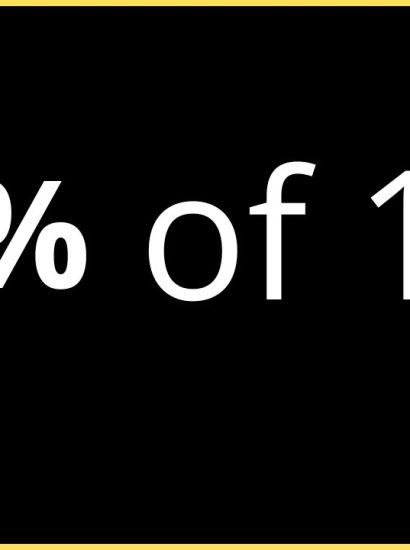In our daily lives, agreements are often made informally, whether it’s lending money to a friend or hiring someone for a personal project. However, verbal agreements can lead to misunderstandings or disputes. A personal contract provides a written, legally binding framework for such agreements, ensuring clarity and protection for all parties involved.
This article explores the concept of a personal contract, its key components, and how to draft one effectively for personal and business matters.
What Is a Personal Contract?
A personal contract is a legally binding agreement between two or more parties that outlines the terms and conditions of a specific arrangement. These contracts can be used for personal or professional purposes and are enforceable in a court of law if all parties agree to the terms.
Key Features of a Personal Contract
- Voluntary Agreement: All parties must willingly consent to the terms.
- Specific Terms: Details such as timelines, payments, and responsibilities are clearly outlined.
- Legal Enforceability: If disputes arise, the contract can be used as evidence in legal proceedings.
When to Use a Personal Contract
Personal contracts are versatile and can be applied in various situations. Here are some common scenarios:
Lending or Borrowing Money
- Example: Loaning money to a friend with an agreed repayment timeline.
- Why it’s important: Prevents disputes about repayment terms or interest rates.
Freelance or Part-Time Work
- Example: Hiring someone to design a website or complete a home repair project.
- Why it’s important: Clarifies deliverables, deadlines, and payment terms.
Renting or Leasing Property
- Example: Renting a room or storage space informally.
- Why it’s important: Protects both landlord and tenant by defining rental terms.
Selling or Purchasing Items
- Example: Selling a car, furniture, or electronics to another individual.
- Why it’s important: Ensures agreement on price, condition, and delivery terms.
Family Agreements
- Example: Dividing inheritance or shared property.
- Why it’s important: Avoids family disputes by documenting agreed terms.
Key Components of a Personal Contract
A well-drafted personal contract should include the following elements:
Identification of Parties
Clearly state the names and contact information of all parties involved in the agreement.
Purpose of the Contract
Specify the reason for the agreement and what each party hopes to achieve.
Terms and Conditions
Outline the specific terms, including:
- Deliverables
- Payment amounts and deadlines
- Timelines or deadlines
- Responsibilities of each party
Termination Clause
Explain the conditions under which the contract can be terminated and the responsibilities of each party in such cases.
Dispute Resolution
Include a clause that describes how disputes will be resolved (e.g., mediation, arbitration, or legal action).
Signatures and Date
The contract must be signed and dated by all parties to confirm their agreement.
How to Draft a Personal Contract
Use Clear Language
Avoid legal jargon and write in simple, concise terms that all parties can easily understand.
e Specific
Include as much detail as possible to eliminate ambiguity. For example, instead of writing “deliver by next month,” specify the exact date.
Include Payment Details
State payment amounts, methods (e.g., cash, bank transfer), and deadlines clearly.
Consult a Lawyer
If the agreement involves significant sums of money or complex arrangements, consider consulting a lawyer to review or draft the contract.
Use Templates When Necessary
Online tools and templates can help you get started. Platforms like Rocket Lawyer or LegalZoom offer customizable personal contract templates.
Benefits of a Personal Contract
| Benefit | Description |
| Clarity | Ensures all parties understand their obligations and expectations. |
| Dispute Prevention | Reduces the likelihood of misunderstandings or disagreements. |
| Legal Protection | Provides evidence in case of a legal dispute. |
| Professionalism | Demonstrates a commitment to honoring the agreement, even in informal situations. |
| Flexibility | Can be tailored to suit specific needs, from simple agreements to complex arrangements. |
Common Mistakes to Avoid in Personal Contracts
Using Verbal Agreements Only
Relying solely on verbal promises can lead to disputes. Always put the agreement in writing.
Lack of Specificity
Vague terms can result in confusion. Be as detailed as possible when defining responsibilities and expectations.
Missing Signatures
Unsigned contracts may not hold up in court. Ensure all parties sign and date the agreement.
Ignoring Termination Clauses
Failure to include termination terms can complicate matters if one party wants to exit the agreement.
Overlooking Dispute Resolution
Without a dispute resolution clause, disagreements may escalate into costly legal battles.
Examples of Personal Contracts
| Type of Contract | Example Scenario |
| Loan Agreement | Loaning $5,000 to a friend with a repayment plan of $500/month for 10 months. |
| Freelance Agreement | Hiring a graphic designer to create a company logo for $1,000 with a delivery deadline. |
| Lease Agreement | Renting your spare room to a tenant for $800/month with a six-month lease term. |
| Purchase Agreement | Selling your car for $10,000, with terms for delivery and payment. |
| Family Agreement | Documenting how an inheritance will be split among siblings. |
Conclusion
A personal contract is a vital tool for protecting your interests and ensuring smooth collaborations in personal and business dealings. By clearly outlining expectations, responsibilities, and terms, personal contracts reduce the risk of disputes and provide legal protection if conflicts arise.
Whether you’re lending money, hiring someone for a project, or renting property, taking the time to draft a comprehensive personal contract can save you time, money, and headaches in the long run.
Ready to secure your next agreement? Start drafting a personal contract today and enjoy the peace of mind that comes with clear and legally binding terms!
FAQs
1. What is a personal contract?
A personal contract is a legally binding agreement between individuals that outlines terms for a specific arrangement, such as lending money or hiring services.
2. Are personal contracts legally enforceable?
Yes, as long as they meet legal requirements, including mutual consent, specific terms, and signatures.
3. Can I create a personal contract without a lawyer?
Yes, you can draft a personal contract using templates or guidelines, but consulting a lawyer is recommended for complex agreements.
4. What happens if a personal contract is breached?
The affected party can take legal action to recover damages or enforce the agreement, depending on the terms.
5. Do personal contracts need to be notarized?
Notarization is not always required, but it adds an extra layer of legal validity, especially for high-value agreements.
Also read: Vertically Mirrored: Understanding Its Meaning and Applications









